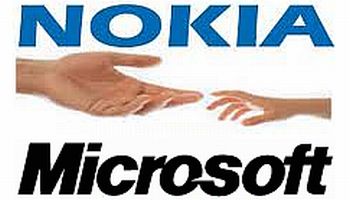Pricing Could Be A Flaw In Nokia’s Phone Strategy

Nokia’s strategy is for Windows Phones to generate volume sales but Lumia is too expensive
Nokia has an aggressive strategy to reclaim market share lost to Android and Apple’s iPhone over the past several quarters: give its new Windows Phone devices a price that Nokia CEO Stephen Elop thinks will generate “good volume”. Apart from price attracting customers, the company will also have to crack the US market.
At a conference in Barcelona this week, Elop told the audience that “our first competitors are the other ecosystems”, according to Reuters. “You see us pricing the devices so that that we can get what we think will be good volume,” he added in an interview with the news service.
High end pricing
As Reuters pointed out, Nokia’s first two Windows Phone devices – the Lumia 710 and 800 – are priced at $365 (£232) and $567 (£360) before carrier subsidies and contracts. Depending on the latter, that could place both devices at a price point beyond that of midrange Android smartphones competing for a portion of the same market.
 Apple has also begun to reduce the price of its iPhone, offering the iPhone 4 for $99 (£63) and the iPhone 3GS for free with a two-year contract in the US market – a twist that could further complicate Nokia’s strategy against some of the biggest players in mobility.
Apple has also begun to reduce the price of its iPhone, offering the iPhone 4 for $99 (£63) and the iPhone 3GS for free with a two-year contract in the US market – a twist that could further complicate Nokia’s strategy against some of the biggest players in mobility.
Nokia will pair the international drive for its Windows Phone devices with a US market push in 2012. Before the Finnish phone maker decided to discontinue its homegrown mobile operating systems in favour of Windows Phone, it owned a negligible portion of the US smartphone market. Elop suggested to Reuters that Nokia would make an aggressive play for US users.
In any case, Nokia’s alliance with Microsoft has piqued developer interest. According to Appcelerator and research firm IDC, which surveyed 2,160 Appcelerator Titanium developers 2-3 November this year, Windows Phone has now eclipsed RIM’s BlackBerry OS as a developer subject of interest.
Nokia driving interest
“Microsoft is enjoying symbiotic success with Nokia,” read the summary of the report. “When asked why developers are more interested in Windows Phone 7 now than a year ago, a plurality (48 percent) said it was the Microsoft/Nokia partnership.”
Nokia’s new Windows Phone devices helped drive that interest.
“Nokia also received high marks from its new Lumia Windows Phone 7 smartphone announcement last month, with 28 percent of developers saying they are ‘very interested’ in developing for the device,” added the report. “This is more than double the interest in Nokia’s own Symbian and MeeGo OSs since Appcelerator began reporting mobile platform interest in January 2010.”
Nokia still faces significant competition from not only Google Android and Apple’s iOS, but also other Windows Phone manufacturers in line with Microsoft’s emerging strategy of targeting the midmarket. In that context, it becomes an open question whether the prices of Nokia’s initial Windows Phone devices are low enough to establish them as a value proposition, and thus a potential volume leader among cost-conscious consumers.